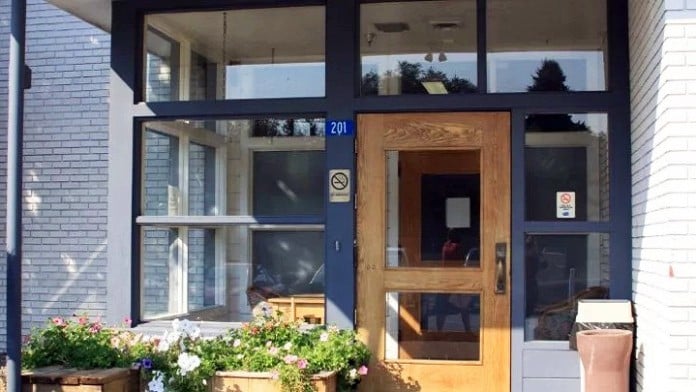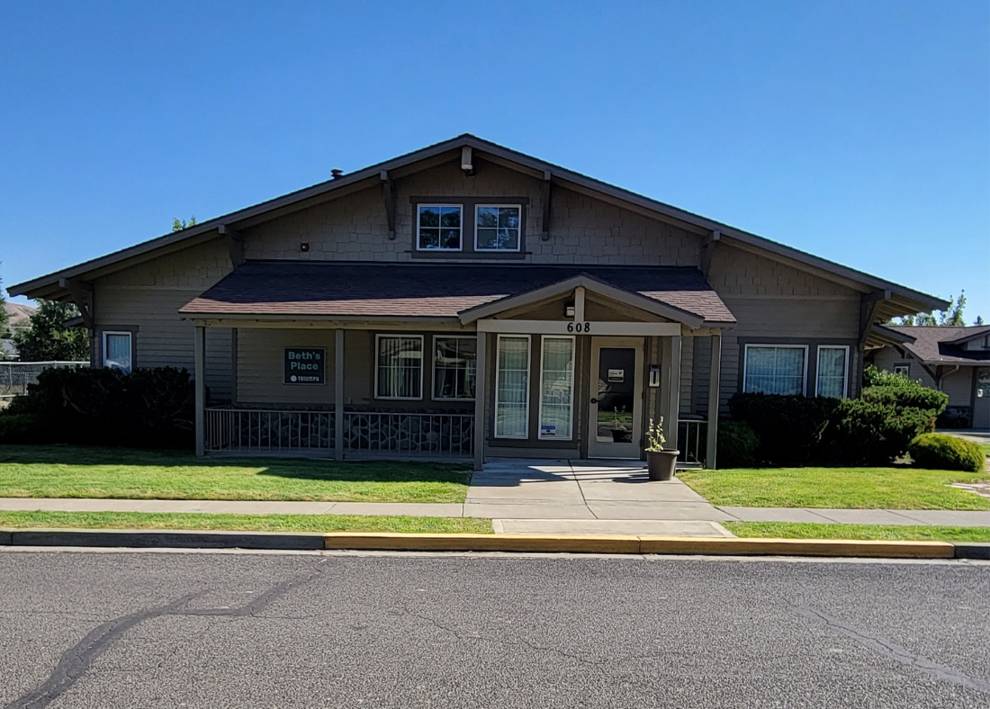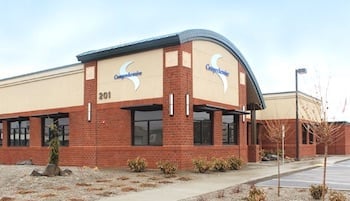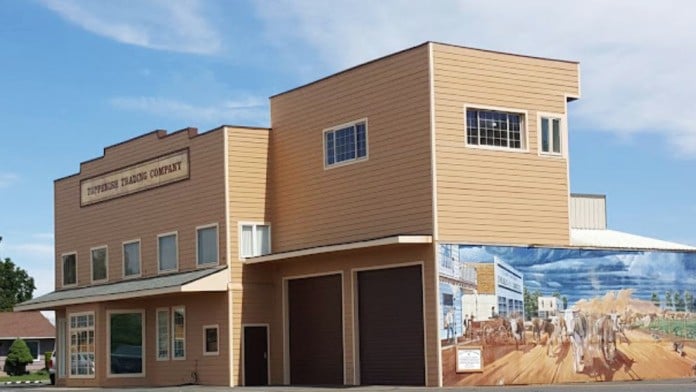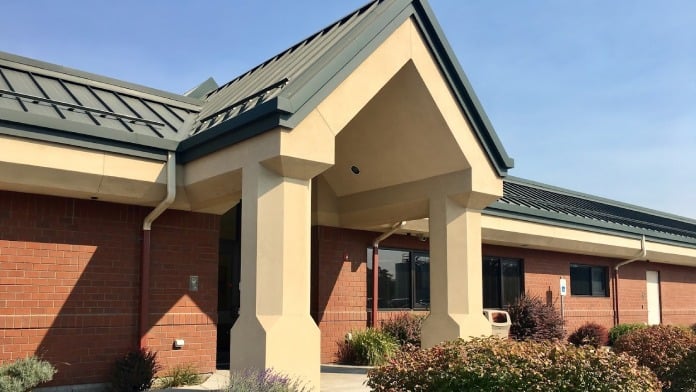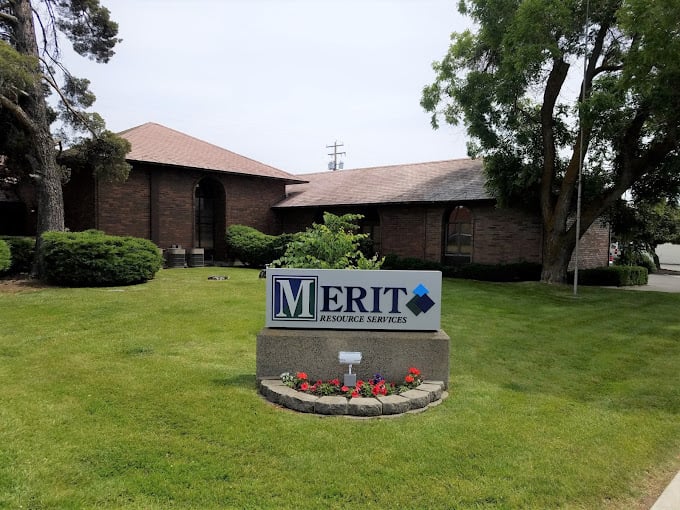It's the worst place ever. The moment I walked in I was already judged and was recommended for therapy. I wish I went somewhere else and I recommended going anywhere else if you don't want someone judging you by your appearance.
About Northwest Behavioral Modification
Northwest Behavioral Modification Services provides outpatient substance use services for adults and adolescents in recovery with a location in Yakima, Washington. They offer general outpatient and intensive outpatient programs. They also offer various intervention services mandated by the court for folks involved with the criminal justice system.
They believe that ease of access is important when seeking care. The clinic is situated near the busy downtown area which eases transportation access. The Yakima Transit system provides bus service around the city with routes running along major streets like East Pitcher Street.
The facility also offers convenient access via private car which makes it easy for people coming from nearby cities like Ellensburg. You can take Exit 33 to Yakima Avenue or East Washington Avenue when coming from this city through the I82 corridor. You can then take a short drive to East Pitcher Street from there.
What I really like about this facility is that they offer services in both English and Spanish. This makes services more accessible to a broader audience including members of the Hispanic community. We also like the flexibility their outpatient services offer. You can maintain your job or family responsibilities while receiving the care you need to heal.
The IOP is suitable if you need more intensive and structured support but not residential care. You can expect to attend over nine hours of group sessions alongside individual counseling. The program may incorporate 12 step meetings, recreational activities and educational and vocational services. Specialized relapse prevention classes, family programming and life skills training are all part of the activities.
They may offer perinatal health care as well as childcare support and parental skills development training for pregnant and postpartum women. Their full spectrum of care may involve ongoing support and social services like transportation aid, housing assistance, unemployment support and medical care. These beneficial services may be accessed via linkage to community resources.
The OP may involve similar services but it’s way less intense and more flexible. You can expect significantly less than nine hours of therapy weekly. It’s also long term with a duration ranging from six months to two years depending on needs. A thorough assessment during intake ensures that care is tailored to your unique needs.
Their court mandated intervention services include Alcohol Drug Information School (ADIS) and DUI Evaluations. ADIS is an eight hour educational courses that offer valuable information on alcohol or other drugs. The program teaches you to make smart choices regarding substance use by considering its impact on your life and the people around you. DUI Evaluation is a court ordered assessment of DUI offenders. The program evaluates the severity of substance use issues and makes recommendations to the court regarding appropriate treatment.
Nature and natural preserves offer therapeutic benefits. Common activities like strolling through a park and sitting beneath a canopy of trees can be super helpful. The city of Yakima has various natural attractions worth exploring during your healing journey here. The Yakima Greenway along the Yakima River and the Naches Heights Vineyard are among the nearby choices. We believe these outdoor natural spots don’t just offer therapeutic benefits but can make your healing journey a memorable experience.
Latest Reviews
Rehab Score
Gallery
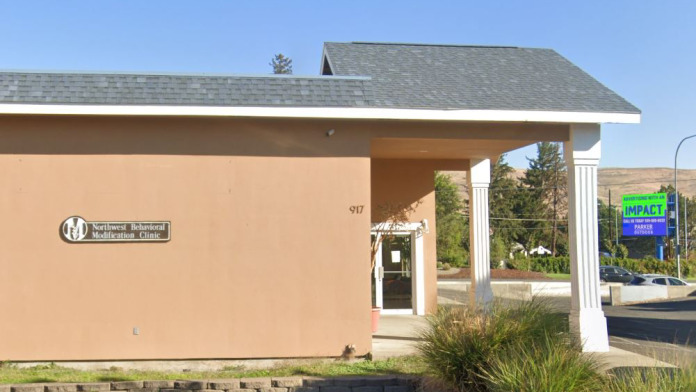
Accepted Insurance
Other Forms of Payment
Medicaid is a state based program that helps lower-income individuals and families pay for healthcare. Medicaid covers addiction treatment so those enrolled can use their coverage to pay for rehab. When a program accepts Medicaid the client often pays very little or nothing out of their own pocket.
Private insurance refers to any kind of healthcare coverage that isn't from the state or federal government. This includes individual and family plans offered by an employer or purchased from the Insurance Marketplace. Every plan will have different requirements and out of pocket costs so be sure to get the full details before you start treatment.
Self-pay involves paying for treatment out of your own pocket. You can use savings or credit, get a personal loan, or receive help from family and friends to fund your treatment. If you don't have insurance or your insurance plan doesn't cover a specific program, self-pay can help ensure you still get the care you need.
Financial aid can take many forms. Centers may have grants or scholarships available to clients who meet eligibility requirements. Programs that receive SAMHSA grants may have financial aid available for those who need treatment as well. Grants and scholarships can help you pai for treatment without having to repay.
Sliding scale payments are based on a client's income and family size. The goal is to make treatment affordable to everyone. By taking these factors into account, addiction recovery care providers help ensure that your treatment does not become a financial burden to you or your family, eliminating one barrier to care.
Medicare is a federal program that provides health insurance for those 65 and older. It also serves people under 65 with chronic and disabling health challenges. To use Medicare for addiction treatment you need to find a program that accepts Medicare and is in network with your plan. Out of pocket costs and preauthorization requirements vary, so always check with your provider.
Military members, veterans, and eligible dependents have access to specific insurance programs that help them get the care they need. TRICARE and VA insurance can help you access low cost or no cost addiction and mental health treatment. Programs that accept military insurance often have targeted treatment focused on the unique challenges military members, veterans, and their families face.
Private insurance refers to any kind of healthcare coverage that isn't from the state or federal government. This includes individual and family plans offered by an employer or purchased from the Insurance Marketplace. Every plan will have different requirements and out of pocket costs so be sure to get the full details before you start treatment.
Addiction Treatments
Levels of Care
 Outpatient
Outpatient
 Intensive Outpatient
Intensive Outpatient
Treatments
The goal of treatment for alcoholism is abstinence. Those with poor social support, poor motivation, or psychiatric disorders tend to relapse within a few years of treatment. For these people, success is measured by longer periods of abstinence, reduced use of alcohol, better health, and improved social functioning. Recovery and Maintenance are usually based on 12 step programs and AA meetings.
Effective drug rehab in Washington integrates care for the whole person, offering comprehensive solutions to addiction. Treatment methods address mental, physical, and relational aspects of substance abuse.
Many of those suffering from addiction also suffer from mental or emotional illnesses like schizophrenia, bipolar disorder, depression, or anxiety disorders. Rehab and other substance abuse facilities treating those with a dual diagnosis or co-occurring disorder administer psychiatric treatment to address the person's mental health issue in addition to drug and alcohol rehabilitation.
A combined mental health and substance abuse rehab has the staff and resources available to handle individuals with both mental health and substance abuse issues. It can be challenging to determine where a specific symptom stems from (a mental health issue or an issue related to substance abuse), so mental health and substance abuse professionals are helpful in detangling symptoms and keeping treatment on track.
Opioid rehabs specialize in supporting those recovering from opioid addiction. They treat those suffering from addiction to illegal opioids like heroin, as well as prescription drugs like oxycodone. These centers typically combine both physical as well as mental and emotional support to help stop addiction. Physical support often includes medical detox and subsequent medical support (including medication), and mental support includes in-depth therapy to address the underlying causes of addiction.
Inpatient and outpatient drug and alcohol rehabs are typically the best option if you're looking for substance abuse treatment in Washington. These programs employ evidence-based therapies such as cognitive-behavioral therapy (CBT), dialectical behavior therapy (DBT), and holistic approaches to help you overcome addiction, enhance your coping skills, and promote your mental health. Together, you'll learn the vital skills to support long-term sobriety and overall well-being.
Programs

Adult Program

LGBTQ Program

Military Program

Program For Men

Program For Women

Seniors Program
Clinical Services
Research clearly demonstrates that recovery is far more successful and sustainable when loved ones like family members participate in rehab and substance abuse treatment. Genetic factors may be at play when it comes to drug and alcohol addiction, as well as mental health issues. Family dynamics often play a critical role in addiction triggers, and if properly educated, family members can be a strong source of support when it comes to rehabilitation.
Group therapy is any therapeutic work that happens in a group (not one-on-one). There are a number of different group therapy modalities, including support groups, experiential therapy, psycho-education, and more. Group therapy involves treatment as well as processing interaction between group members.
Trauma therapy addresses traumatic incidents from a client's past that are likely affecting their present-day experience. Trauma is often one of the primary triggers and potential causes of addiction, and can stem from child sexual abuse, domestic violence, having a parent with a mental illness, losing one or both parents at a young age, teenage or adult sexual assault, or any number of other factors. The purpose of trauma therapy is to allow a patient to process trauma and move through and past it, with the help of trained and compassionate mental health professionals.
Often, substance use disorder originates with negative thinking patterns. Cognitive behavioral therapy in Washington is designed to help individuals change these patterns of thought, which leads to changes in behavior and freedom from addiction.
Dialectical behavior therapy (DBT) is a highly structured form of therapy that teaches skills to help participants change negative thoughts and behaviors. Applying a philosophy of acceptance and change, you'll learn and practice these skills to break unhealthy patterns and establish healthy ones.
Clinicians who apply motivational interviewing techniques engage with their clients as equal partners. This method avoids warnings and confrontation and instead allows clients to analyze their situation and explore their options. This technique is often used when the client feels unsure about their ability or desire to change.
Staff & Accreditations
Staff
Nicolas Chavez
Owner
Accreditations

State Licenses are permits issued by government agencies that allow rehab organizations to conduct business legally within a certain geographical area. Typically, the kind of program a rehab facility offers, along with its physical location, determines which licenses are required to operate legally.
State License: Washington
Contact Information
917 East Pitcher street
Yakima, WA 98901
